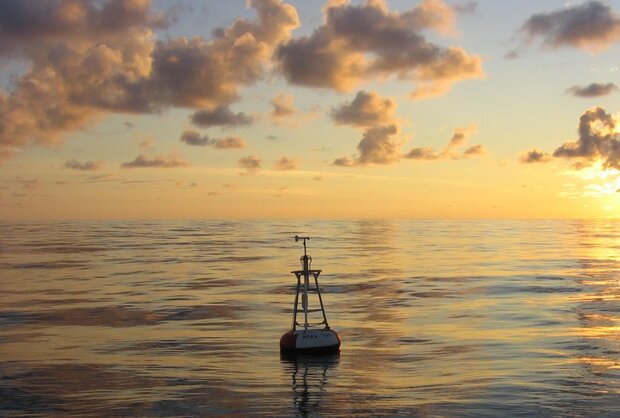Global ocean observing for Earth Day


A buoy floats in the ocean. Credit: NOAA
Every day, millions of ocean measurements are collected from the surface to the seafloor, all across the globe. Ocean information and data are used to improve climate prediction models, weather forecasts, fisheries management, and help scientists better understand how our ocean is changing over time. By absorbing heat and carbon from the atmosphere, the ocean is currently slowing down the impacts of climate change, but this has negative effects on marine life and ecosystems. For decades, scientists have been working together across international boundaries to study our global ocean and develop a global ocean observing system. This system is made up of a variety of instruments that collect ocean data and all the people who contribute their ideas, research and passion for ocean science to improve our world.
NOAA’s Global Ocean Monitoring and Observing Program supports half the world’s ocean observing research by investing in programs such as Argo, the Global Drifter Program, the Global Tropical Moored Buoy Array, and a variety of data products, such as the Surface Ocean CO2 Atlas, that show us how the ocean is changing over time.